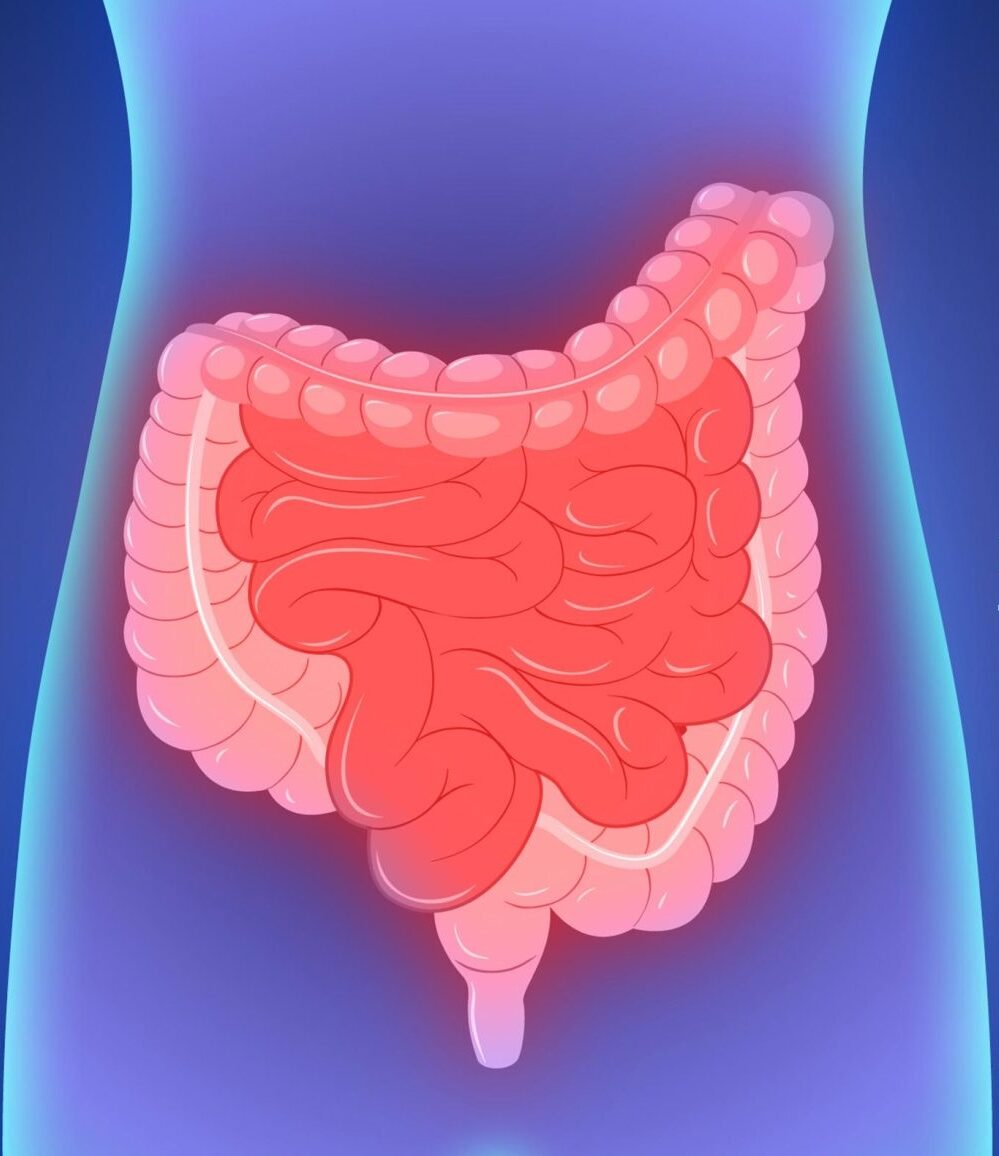CONDITIONS
Irritable Bowel Syndrome (IBS) Treatment in Dubai

Irritable bowel syndrome (IBS) is a common digestive condition characterized by abdominal pain and changes to bowel habits. Although IBS is not life-threatening it can cause very troublesome gastrointestinal symptoms and can have a significant impact on a sufferer’s quality of life.

What are the symptoms of IBS?
In IBS there is typically an alteration in bowel habit – either diarrhea with urgency, constipation, or a combination of both. Other common symptoms include crampy abdominal pain (which may be related to needing to pass stool and often temporarily relieved by going for a poop), mucus in the stool, bloating, and gassiness. Other symptoms that might also occur in IBS include tiredness, nausea, backache, and bladder symptoms (e.g. needing to pee more).
IBS symptoms are normally present for many months. IBS should not be diagnosed unless you have had symptoms for at least three months. Symptoms may vary in severity and tend to come and go. IBS symptoms can have a big impact on the lives of people who suffer from the disease. People with IBS often find that stress can make their symptoms worse (although stress can also make the symptoms from any abdominal problem worse). Some IBS sufferers also find that certain foods can make their symptoms worse.
Some symptoms would not normally be expected in IBS. These symptoms include losing weight, seeing blood in your poop, and abdominal pain or diarrhoea that wakes you up at night. If you experience these symptoms and have previously been diagnosed with IBS, you should see a gastroenterologist to question the diagnosis.
Frequently Asked Questions
IBS is common. It is estimated that IBS will affect 10-15% of people at some point in their life, although it is thought that less than 50% of IBS sufferers will ever consult with a doctor about their symptoms. IBS is more common in women than in men. It more often occurs in young adults – most cases are diagnosed between the ages of 20 and 30 years. IBS can occur in older people, but it is more unusual – and, as we get older, other causes for abdominal symptoms become more common.
Although IBS is common, doctors do not fully understand the causes of the disease. We believe one of the problems causing IBS is a change in the activity or sensitivity of the nerve endings in the bowel wall. An alteration in activity can change how often you need to go to the toilet – and how quickly. It may disrupt the function of the bowel to cause abnormally strong painful contractions and bloating. If the nerve endings are oversensitive, then you might find that even slight stretching of the colon wall caused by poop in the bowel will be painful. Factors that can impact the sensitivity and activity of nerve endings in the bowel wall include stress, certain foods, or a previous gut infection (post-infectious IBS).
Although IBS can cause very unpleasant symptoms, it is not life-threatening. IBS does not increase your risk of dying early or developing cancer or other serious diseases.
Taking a careful history of symptoms is the most important part of making an IBS diagnosis. There are no tests that confirm the diagnosis of IBS as there are no tests in clinical use that look at the sensitivity of nerve endings in the bowel. The role of tests is to exclude other conditions that can cause similar symptoms. Once these other conditions are ruled out, your doctor can make the diagnosis of IBS. Your doctor may run blood tests and take stool samples to rule out conditions such as infections, celiac disease, or inflammatory bowel disease. In women, a blood test to rule out ovarian cancer may be useful. If there is doubt about the diagnosis or if you develop IBS symptoms later in life, you may need an examination of the colon with a colonoscopy. This is also the case if you have alarm symptoms such as blood in the stool.
There are many potential treatments for IBS but no one treatment works for everybody. Options include dietary changes, lifestyle changes to promote relaxation and reduced stress levels, medications to treat symptoms, and medications to calm down overactive and oversensitive nerve endings in the gut.
Some people may be tempted to self-diagnose with IBS if they recognize the symptoms. However, other bowel problems, even cancers, can cause the same sort of symptoms as IBS. It is important to see a gastroenterologist if you suspect that you have IBS to help confirm the diagnosis and exclude other conditions that could cause the same symptoms. Dr Neil can help manage IBS symptoms with lifestyle changes, diet, and medication.
Isn’t IBS just a label that doctors use when they don’t know the real diagnosis?
No – IBS is without a doubt a real disease. However, sometimes people may indeed be given a diagnosis of IBS that afterwards turns out to be incorrect. If you have been diagnosed with IBS in Dubai but aren’t sure and want to make sure the diagnosis is correct, then make an appointment to see Dr Neil.

Dr Neil has a great deal of experience in helping people with their IBS treatment. Dr Neil will not only diagnose your condition but give you advice on how to manage your condition in a way that suits you and your lifestyle. He works closely with expert dieticians in Dubai who can provide detailed diet plans to help reduce your IBS symptoms.
